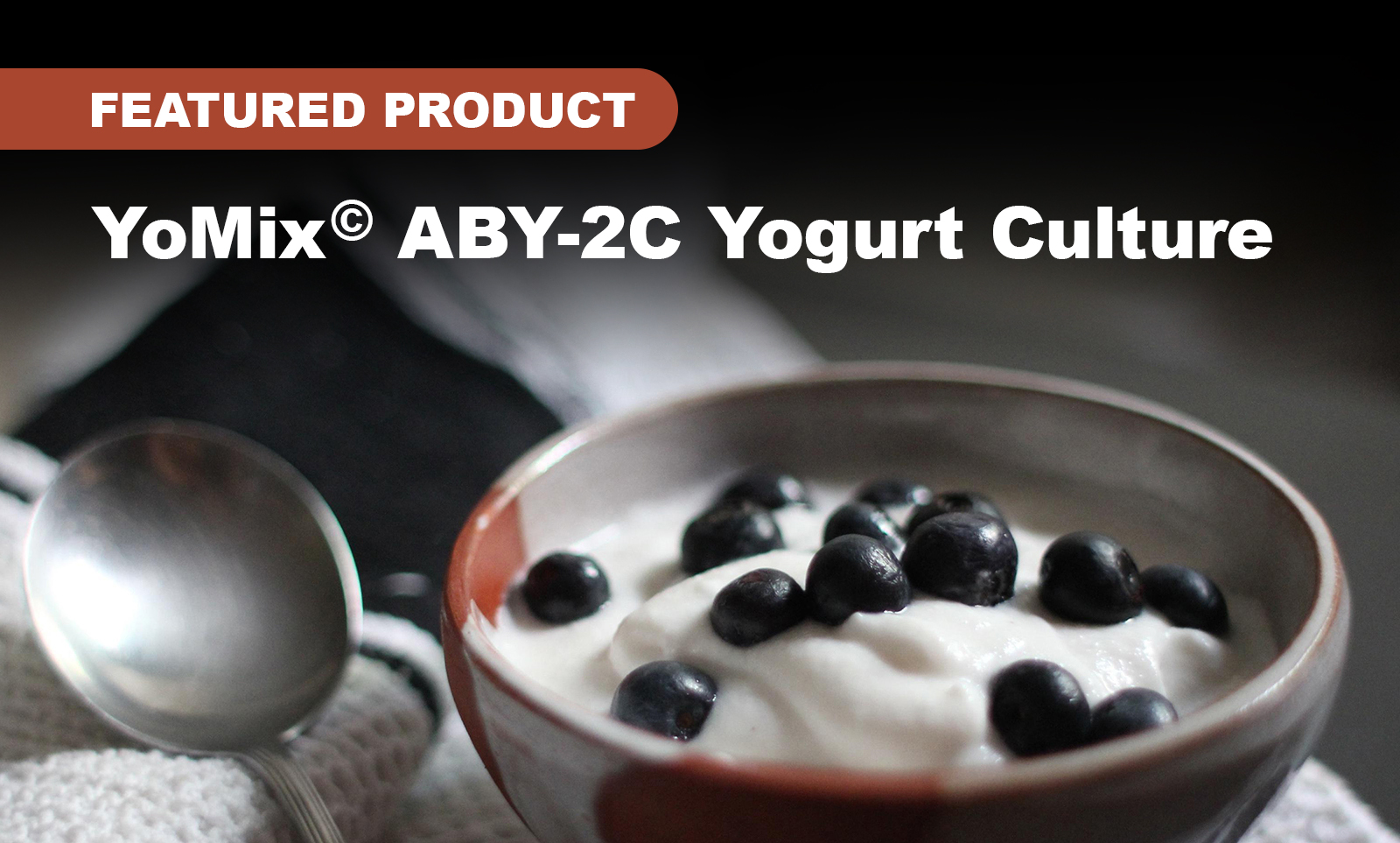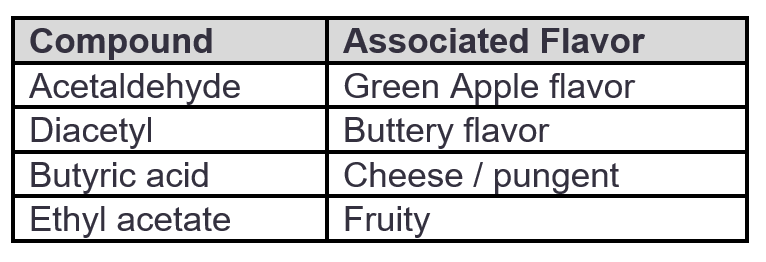Featured Product: YoMix© ABY-2C Yogurt Culture

By: Bill Rufenacht | Technical Specialist, Dairy Connection Inc.
YoMix© ABY-2C is a yogurt starter culture blend manufactured by IFF (International Flavors and Fragrances, Inc.). This culture is a workhorse for many Dairy Connection customers. Given proper fermentation conditions, ABY-2C will consistently produce a mild tasting, thick-bodied yogurt in five to six hours. It is usually on the short list of cultures that we recommend for trial to clients who may be new to yogurt manufacture.
ABY-2C is a blend of the following bacteria:
- Streptococcus salivarius subsp. thermophilus (formerly Streptococcus thermophilus)
- Lactobacillus delbrueckii subsp. bulgaricus
- Lactobacillus delbrueckii subsp. lactis
- Lactobacillus acidophilus
- Bifidobacterium lactis
Per the FDA’s Code of Federal Regulations, Streptococcus salivarius subsp. thermophilus (formerly Streptococcus thermophilus) and Lactobacillus delbrueckii subsp. bulgaricus are required ingredients for a fermented milk product if it is to be labeled “yogurt” in the United States. They are the bacteria that produce lactic acid, which is critical to yogurt forming a gel. Lactobacillus delbrueckii subsp. lactis also contributes to acid development but is not required by code. The other bacteria in the ABY-2C blend are probiotics. The probiotic cultures contribute little in terms of acidification, flavor, or texture compounds. What probiotic organisms do produce are substances that stimulate or benefit the growth of other microorganisms. In the case of yogurt, the concern is with the health of microorganisms in the intestine (the gut) and in promoting the overall health of an individual.
ABY-2C has been popular enough with our customers that we repackage it into amounts that are more convenient for smaller-scale yogurt producers:
- 50 gallons | DCI package
- 100 gallons | DCI package
- 300 gallons | DCI package
- 375 DCU (500 gallons) | Manufacturer package
- 750 DCU (1000 gallons) | Manufacturer package
- 1125 DCU (1500 gallons) | Manufacturer package
If you are producing yogurt for resale in the United States, you’re likely aware that the U.S. Food and Drug Administration addresses yogurt production in the Code of Federal Regulations (Title 21, Part 131 Milk and Cream, Subpart B, Sec. 131.200 – Yogurt), as mentioned earlier. The FDA recently amended the standard of identity and issued new rules for yogurt labeling. The new regulations took effect on January 1, 2024:
https://www.fda.gov/FoodGuidances, https://www.fda.gov/regulatory-information/search-fda-guidance-documents, or https://www.regulations.gov.
If you are not yet familiar with the changes to the U.S. yogurt regulations, we’d recommend that you review the modified standard and labeling requirements as soon as possible in case any of the changes impact your operation.
A Bit More About Yogurt
The lactic acid bacteria Streptococcus salivarius subsp. thermophilus and Lactobacillus delbrueckii subsp. bulgaricus have a symbiotic relationship -- they produce compounds that create conditions favorable for each others’ growth, while producing the lactic acid that lowers the pH of milk to its isoelectric point of 4.6, causing it to coagulate. Depending on the strains chosen, yogurt cultures also produce varying amounts of exopolysaccharides, which are compound molecules that contribute to the creamier, thicker texture of some yogurts.
Additionally, S. salivarius and L. bulgaricus are responsible for producing these chemical compounds and their associated flavors during fermentation:

ABY-2C produces a balanced flavor that appeals to many yogurt consumers, which explains why it is popular among our yogurt manufacturing customers.
Recent Blog Posts
-
New Cheese Coating Supply Now Available
By: Bill Rufenacht | Technical Specialist, Dairy Connection Inc.If you use cheese-coating as part o …5th Sep 2024 -
Featured Product: Natural Calf Rennet
By: Bill Rufenacht | Technical Specialist, Dairy Connection Inc.As you may be aware, we have experie …19th Jun 2024 -
Featured Product: YoMix© ABY-2C Yogurt Culture
By: Bill Rufenacht | Technical Specialist, Dairy Connection Inc.YoMix© ABY-2C is a yogurt …2nd Apr 2024